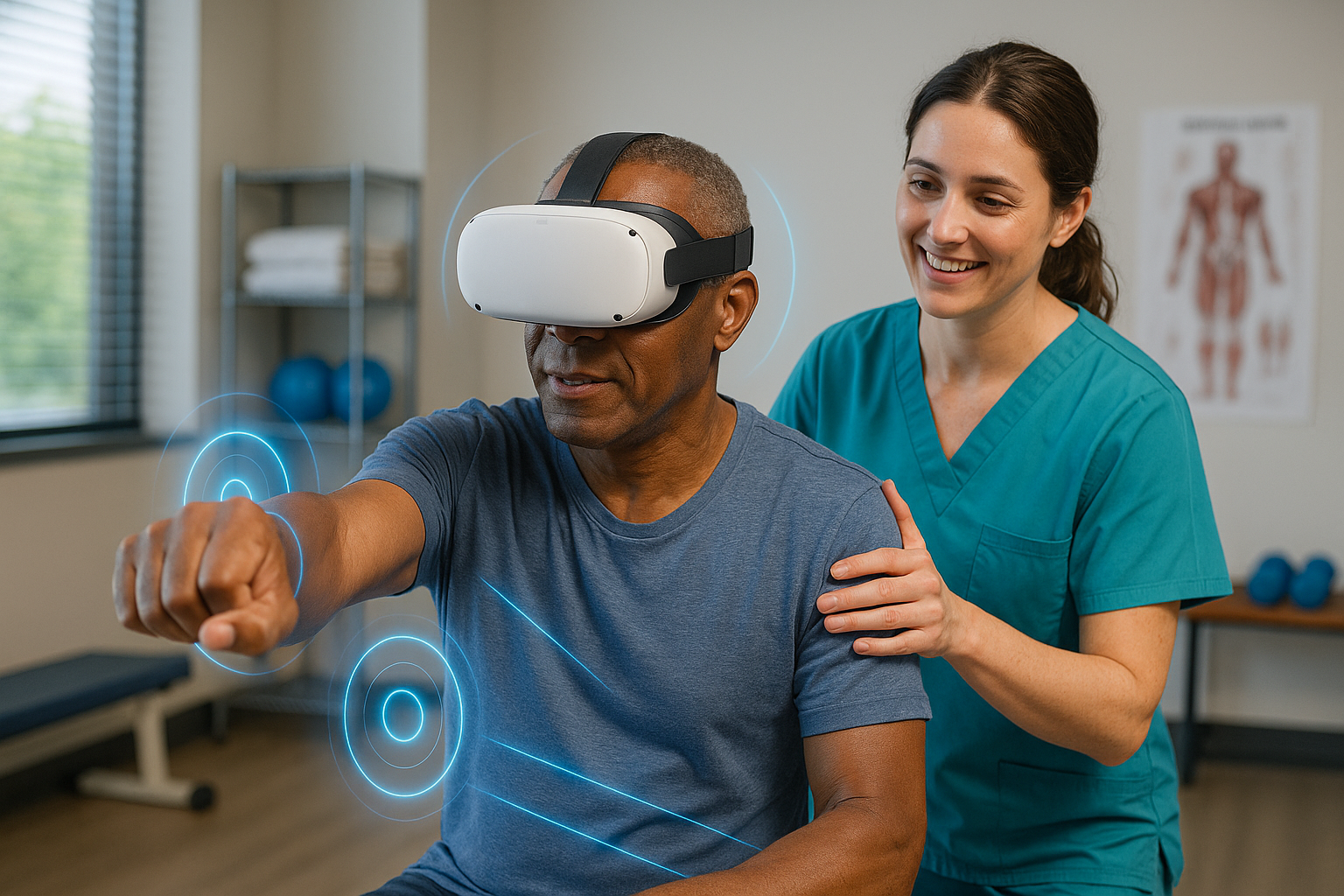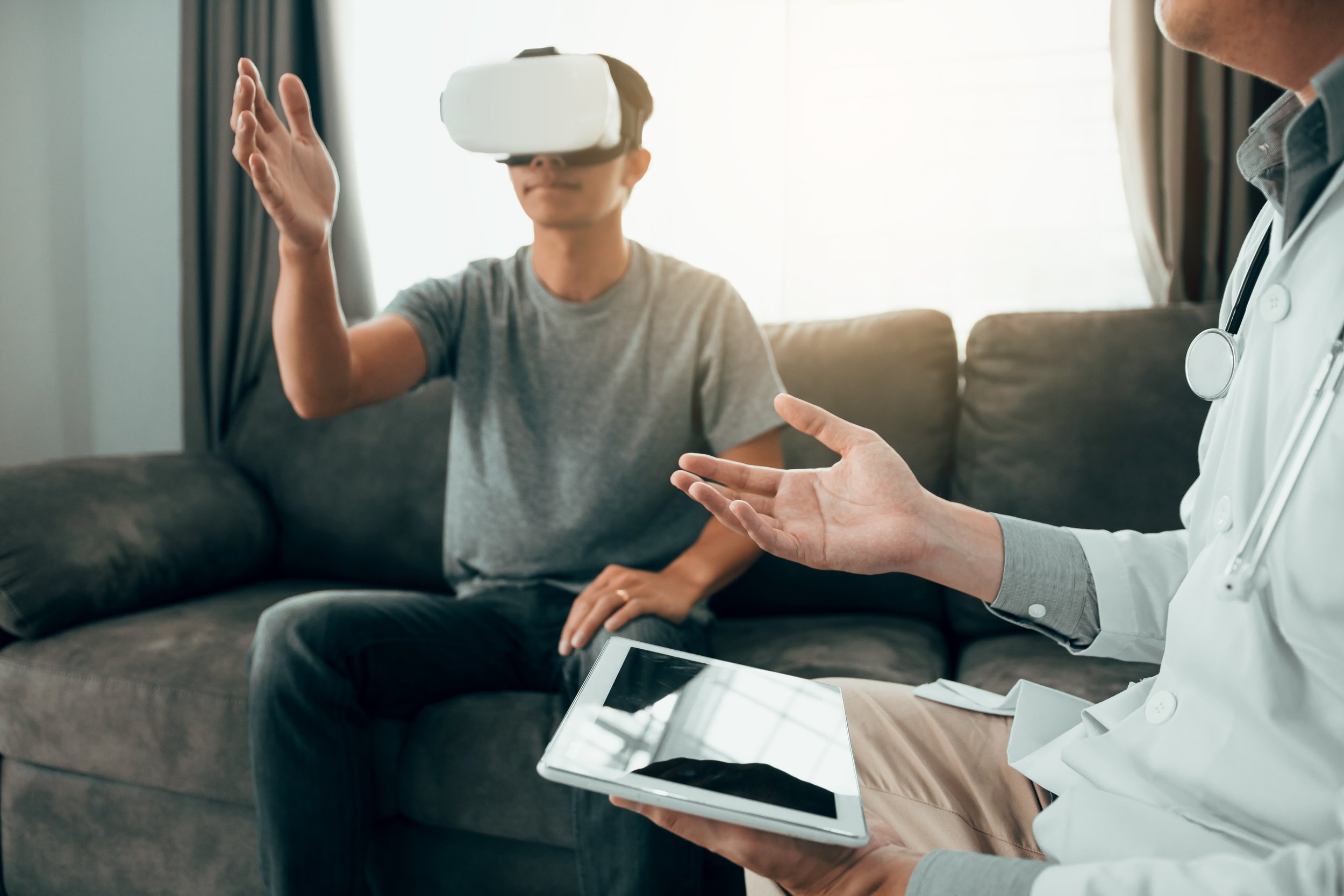Rehab Reimagined Blogs & Research

Why XR Will Become a Standard of Care in the Next 10 Years
In rehabilitation, we are entering a new phase of innovation. This shift is not about replacing clinicians but enhancing how we deliver care. Extended Reality (XR), which includes virtual, augmented, and mixed reality, is moving rapidly from a “nice-to-have” to a “necessary” tool in modern therapy.

Breathing, Relaxation, and Pain Distraction: Evidence-Based Approaches in VR
In practice, I have seen this effect firsthand. One patient, confined to bed and relying on narcotic pain medication, initially resisted therapy because his pain was overwhelming. Once immersed in a distraction-based VR environment, his focus shifted entirely. His breathing slowed, his muscles softened, and his expression changed. Within minutes, his reported pain dropped from a 9 to a 2. When the nurse returned with his next medication dose, he declined it, saying he finally felt ready to get up and walk. This moment captured what the data shows: distraction through immersion is not avoidance; it is engagement through relief.

What Traditional Rehab Gets Right and Where XR Can Help Bridge the Gaps
After 14 years in the clinic, I’ll be the first to say: traditional rehab works. I’ve seen firsthand how skilled therapy changes lives. I’ve also seen the barriers: limited time, fatigue, disengagement, and access challenges. That is why I believe XR is not here to replace what already works; it is here to build on it. With the right design, XR can extend therapy beyond the walls of the clinic, make practice more engaging, and open the door to possibilities we could not reach before. I am confident that the future of rehab lies in this blend of proven foundations and innovative tools, and that future looks incredibly hopeful.

From Patient Care to Platform Creation: Why I Left the Clinic to Build XR Tools for Rehab
For over a decade, I worked as a Physical Therapist—shoulder to shoulder with patients who were fighting some of the biggest battles of their lives. Stroke survivors learning to walk again. Traumatic brain injury patients working to regain balance. Individuals struggling with dizziness, double vision, or post-concussion symptoms just trying to feel “normal” again.
To this day, I remember every single one of them. Their faces. Their stories. Their breakthroughs and setbacks. I often find myself wondering how they’re doing now—hoping they’re living fuller, more independent lives. Every one of them still holds a special place in my heart.
Helping people heal became a part of my identity long before I ever stepped into a non-clinical role.

Can VR Help Patients with Alzheimer’s Disease? A Curious Dive into an Emerging Therapeutic Possibility
As someone deeply engaged in neurorehabilitation, I've seen firsthand how virtual reality (VR) can support brain plasticity, spark motivation, and encourage functional recovery in conditions like stroke, traumatic brain injury, and vestibular disorders. These experiences often lead me to wonder, if VR can make such a difference in these areas, could it also offer something meaningful to individuals living with Alzheimer’s Disease (AD)?

Combating Depression with Virtual Reality: Emerging Therapies and Outcomes
Mental health challenges are often an invisible but profound consequence of injury, illness, and trauma. As a physical therapist, I see firsthand how patients grappling with new limitations often experience significant emotional distress. The loss of independence, changes in lifestyle, and disruption of personal identity can contribute to feelings of depression. Supporting patients' mental health is not only compassionate care; it is essential to achieving the best possible physical recovery outcomes. Virtual reality (VR) is emerging as a powerful tool in mental health support, offering new, evidence-based pathways for healing and hope.

Virtual Reality in TBI Rehabilitation: A Neuro Rehab PT’s Perspective
March is Traumatic Brain Injury (TBI) Awareness Month, a time dedicated to raising awareness about brain injuries and advancing research and treatment approaches that help patients recover. As a neuro rehab physical therapist, I’ve worked closely with TBI patients and have seen firsthand the challenges they face in regaining independence. Rehabilitation is never one-dimensional—it requires an integrated approach that addresses motor recovery, cognitive function, and balance control all at once.

Transforming Rehabilitation with Virtual Reality: A Guide to Implementing VR Systems in Your Facility
Virtual Reality (VR) is rapidly gaining recognition as a transformative tool in rehabilitation, offering immersive environments that promote engagement and enhance functional outcomes. However, successfully integrating VR into clinical practice requires careful planning, resource allocation, and ongoing support. This blog post outlines strategies for healthcare providers to adopt VR technology effectively.

